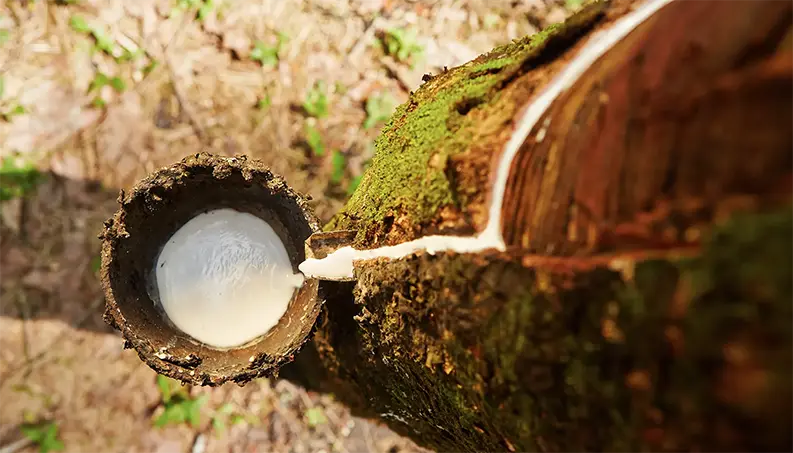Where does the rubber come from?
The word “rubber” comes from the indigenous people of the Amazon. It is a transformation of the original term cautchouc, which literally means “tree that cries”. Thus, it was used to name the rubber tree, the Hevea brasiliensis. The milk that was extracted from the tree was latex.
Naturally, the Indians were the first to make use of this material, most of which was used in the manufacture of clothing.
With time and the arrival of colonization, rubber shipments were transported to many places in Europe and North America.

What is vulcanized rubber?
Despite the good characteristics presented by this material, which was so popular as early as the 19th century, there was still a need to discover more about its chemical properties. The outside temperature changed the texture of the rubber, making it harder than usual in winter and offering the opposite effect at high temperatures. The material needed to be stabilised.
The story is popular: In 1839 Charles Goodyear accidentally dropped a mixture of rubber and sulfur on a stove. In this bizarre way the process of vulcanization was discovered. By this method, which involves the addition of sulfur or other additives, the polymer chains of the rubber are modified, giving way to a healing process that seals in its properties.
Rubber today
Although it is a reality that the vulcanization process is absolutely essential in modern industry, rubber extraction has changed.
While it is true that natural rubber is still used, most of the industry is linked to synthetic rubber. Synthetic rubber is made by polymerising different types of monomers. The proportions in the mixtures, as well as the additives used for vulcanization, change the properties. As a result, the composition of the rubber can be controlled as long as it provides optimum qualities.
In addition, synthetic rubber is more economical and accessible.
At Rubbermat we are specialists in machinery for handling and processing rubber.
We offer customised solutions to our customers. Contact us to find yours.

